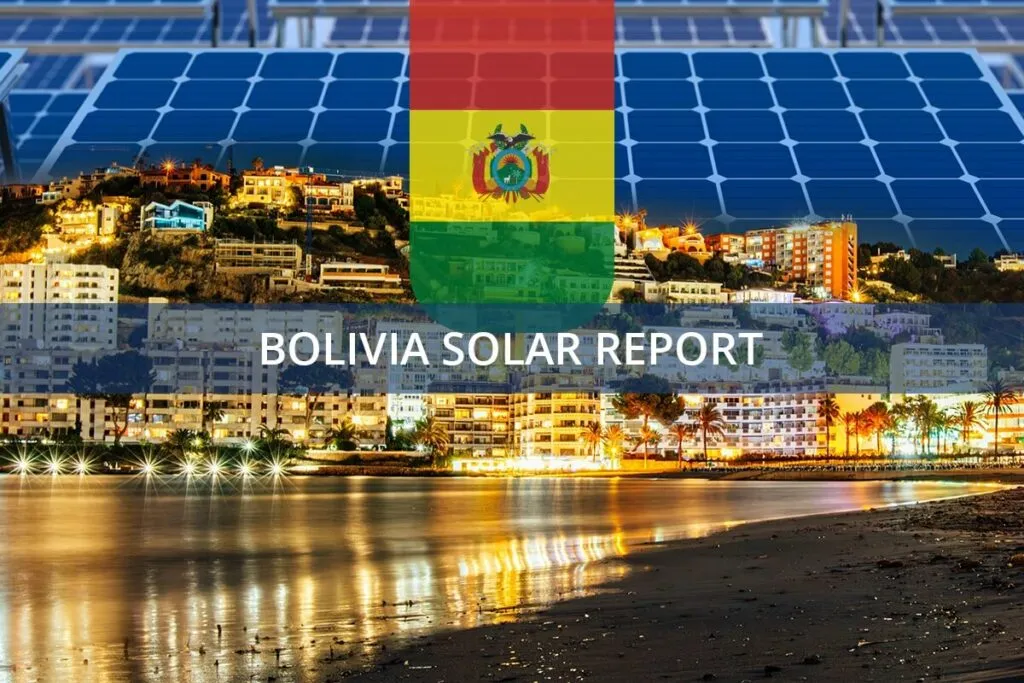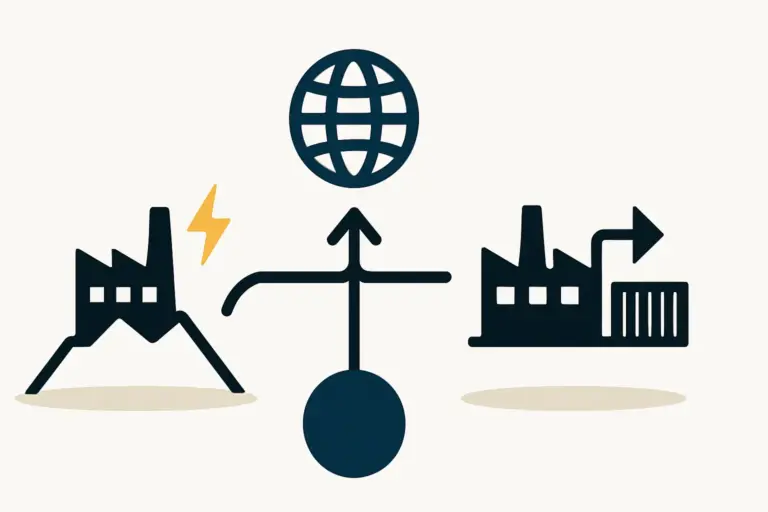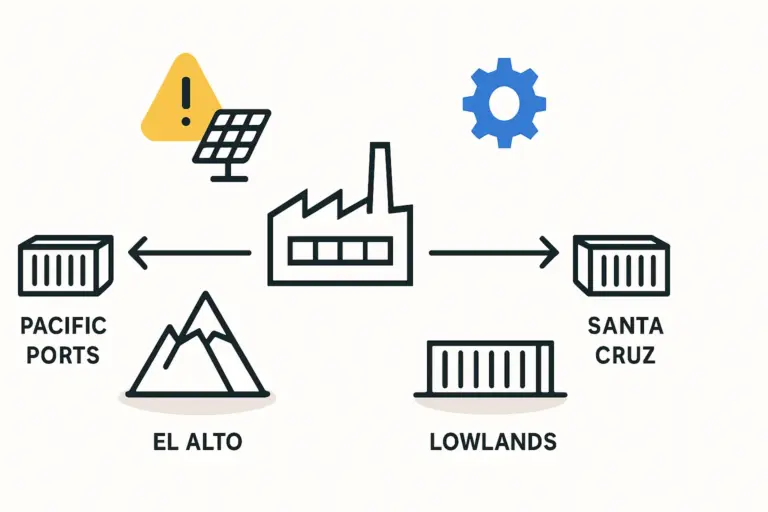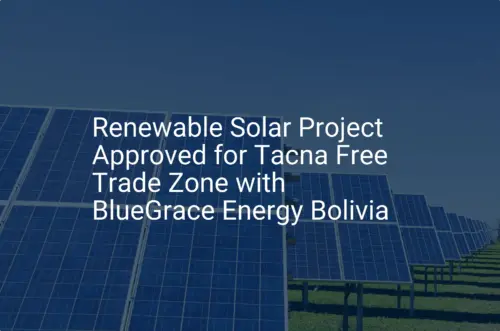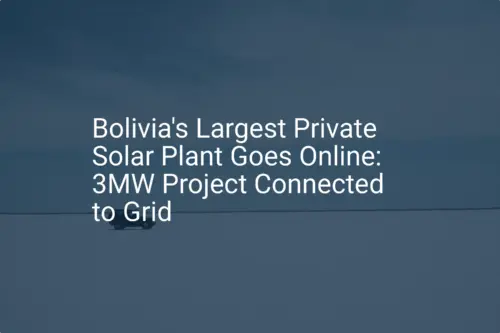An investor looking at a map of South America will immediately notice Bolivia’s high solar irradiation levels as a significant natural advantage. The country boasts some of the best solar resources in the world, making its potential for photovoltaic energy immense. However, experienced entrepreneurs know that natural resources alone do not guarantee a successful business venture. Often, the deciding factor is the legal and financial framework a government puts in place.
For those considering entering the solar module manufacturing space in Bolivia, Law No. 1205 for the Generation and Transmission of Electric Energy provides this critical framework. Enacted to modernize and diversify the country’s energy matrix, this law offers a compelling set of incentives designed to foster a local solar manufacturing industry. This guide explores the specific provisions that directly impact the financial viability of establishing a production facility in the country.
Table of Contents
The Strategic Purpose of Law No. 1205
To fully appreciate the incentives, it helps to first understand the government’s objectives. Historically, Bolivia has relied heavily on thermoelectric generation powered by fossil fuels. Law No. 1205 represents a strategic pivot towards energy sovereignty and sustainability. Its primary goals are to:
- Diversify the National Energy Matrix: Reduce dependence on a single energy source and integrate renewables like solar into the national grid.
- Promote Local Industrialization: Encourage the establishment of local manufacturing capabilities, fostering technology transfer and creating skilled employment.
- Encourage Distributed Generation: Empower homes, businesses, and industries to generate their own electricity, increasing grid resilience and energy access.
This context is crucial for entrepreneurs, as projects aligned with these national priorities are far more likely to receive streamlined support from regulatory bodies.
Key Financial Incentives for Solar Module Manufacturers
Law No. 1205 translates these strategic goals into tangible financial benefits for companies willing to invest in local production. These incentives directly address the primary costs and risks associated with setting up a new factory.
Tax Exemptions: A Direct Impact on Capital Investment
High initial capital expenditure is one of the biggest barriers to entry in manufacturing. The law addresses this directly through substantial tax exemptions. It grants a full exemption from:
- Value Added Tax (IVA): This 13% tax is waived on the import of machinery, equipment, and necessary raw materials for solar module assembly.
- Customs Duties (Gravamen Arancelario): All customs tariffs are eliminated for the same imported goods.
For a new manufacturing line, these exemptions provide immediate, substantial savings. For instance, on an initial investment of USD 2 million for solar manufacturing equipment, these exemptions could result in savings of over USD 260,000—funds that can be reallocated to operations, training, or raw material inventory.
Feed-in Tariffs: Securing Revenue Streams
While tax exemptions reduce initial costs, a stable domestic market is essential for long-term success. The law addresses this by establishing a system of feed-in tariffs (FiTs) for renewable energy. A FiT guarantees a fixed, often preferential, price for every kilowatt-hour of electricity a renewable energy project feeds into the national grid.
For a solar module manufacturer, this incentive is indirect but powerful. By making solar energy projects more profitable and predictable for developers, the FiT system stimulates local demand for solar panels. This creates a reliable and growing local market, reducing the manufacturer’s dependence on export markets and the complexities of international logistics.
The Distributed Generation Framework: Creating a Domestic Market
One of the most forward-thinking aspects of Law No. 1205 is its strong emphasis on distributed generation (DG). The framework actively encourages the installation of smaller-scale solar systems (up to 500 kW) on residential, commercial, and industrial properties.
This policy creates a new and diverse customer base for local manufacturers. Instead of competing solely for large, utility-scale solar farm contracts, a Bolivian factory can produce modules tailored for a broad market of smaller installers and business owners. This de-risks the business model and opens up numerous sales channels across the country.
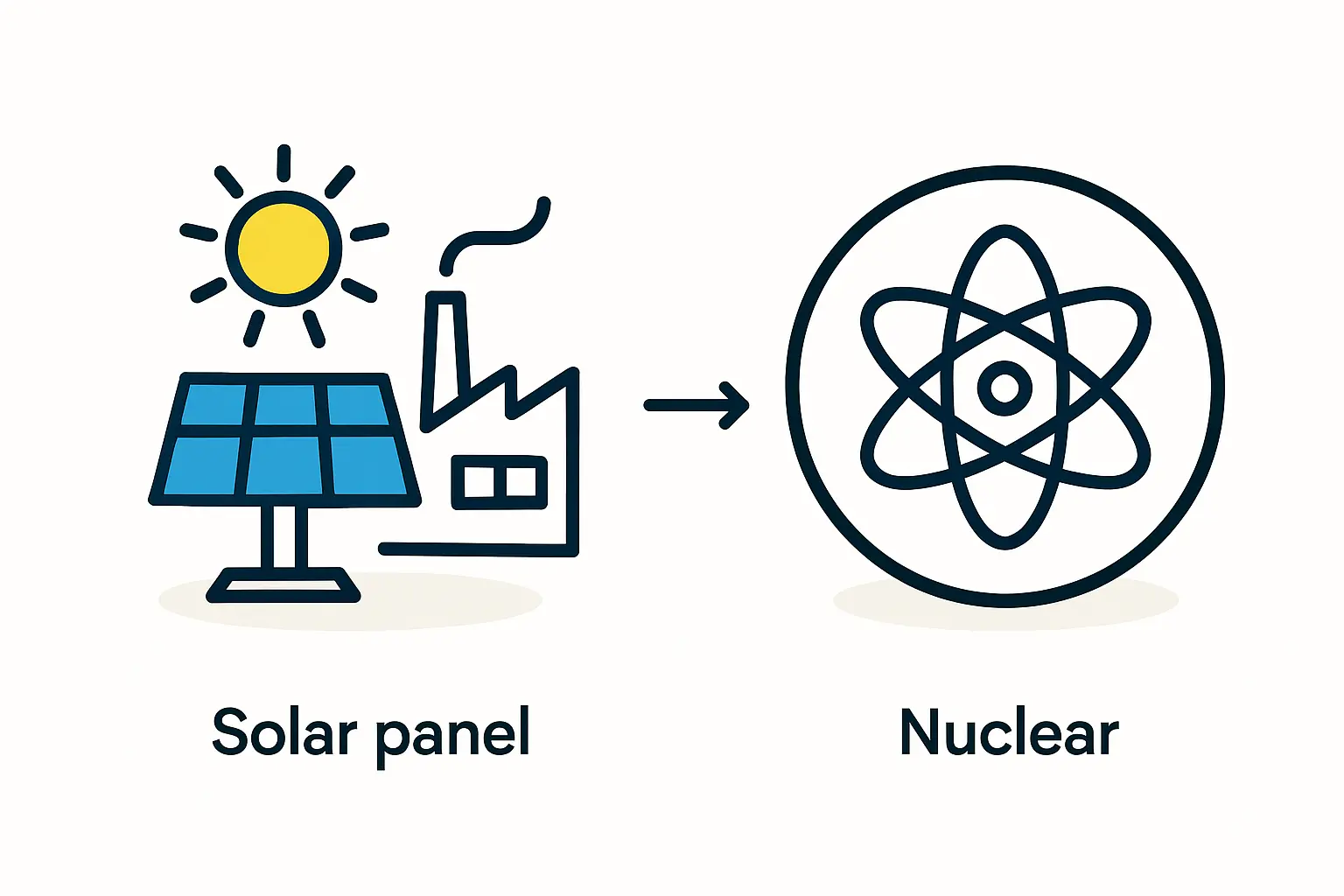
Navigating the Certification and Homologation Process
To ensure quality and safety, the law requires that all electricity generation equipment, including solar modules, be certified and homologated. The Electricity and Nuclear Technology Supervisory Authority (AETN) is the body responsible for this process.
This mandatory step involves submitting technical specifications, test reports, and quality management documentation for approval. Since achieving homologation from the AETN is a prerequisite for selling modules within Bolivia, investors should factor the timeline and documentation requirements of this process into their operational plans.
The Impact on Local Employment and Technology Transfer
Law No. 1205 is also designed to promote job creation and the transfer of technical skills into the Bolivian economy. A manufacturing project is viewed not just as a power-generating asset but as a vehicle for national development.
Based on experience from turnkey projects in similar markets, a semi-automated 50 MW production facility can create between 80 and 120 direct jobs for technicians, engineers, and administrative staff. When planning a venture, highlighting a commitment to local hiring and training can be a significant advantage in discussions with government agencies.
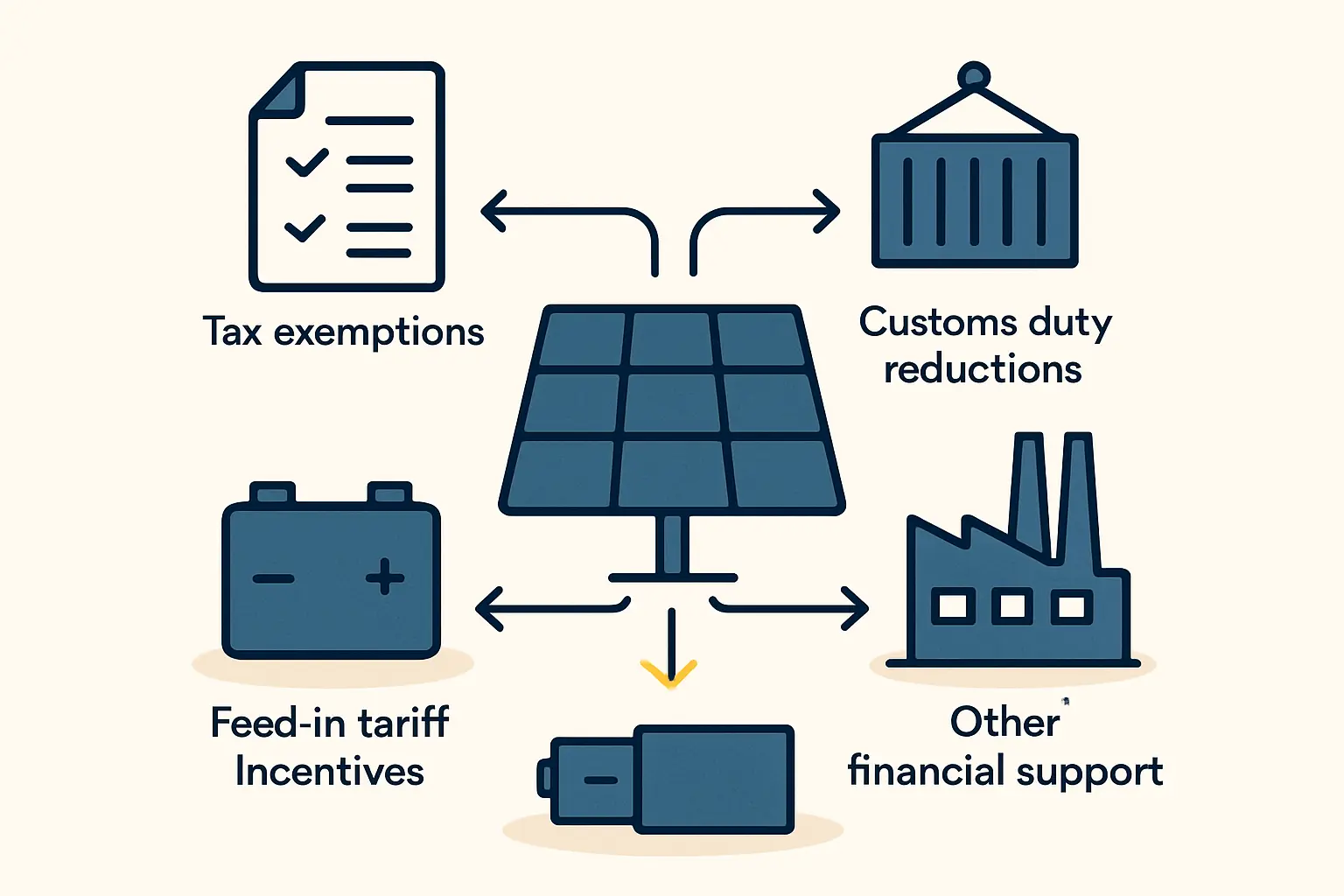
Frequently Asked Questions (FAQ) for Investors
What is the primary goal of Law No. 1205?
The law’s main objective is to diversify Bolivia’s energy sources away from fossil fuels, promote energy security, and build a local industrial base around renewable technologies like solar PV.
Are the tax incentives only for large-scale projects?
No. The exemptions from VAT and customs duties apply to the importation of machinery and raw materials for manufacturing, regardless of the factory’s planned output. This benefits ventures of all sizes, from small-scale assembly lines to large, fully automated plants.
How does this law create a market for locally manufactured panels?
It creates a stable domestic market in two ways: first, through feed-in tariffs that make solar projects financially attractive to developers, and second, by promoting a distributed generation framework that creates demand from thousands of potential residential and commercial customers.
What is the first step to take advantage of these incentives?
The first step is to develop a detailed and realistic business case. This document should outline the production technology, target market, financial projections, and a clear plan for navigating the AETN homologation process. A robust solar business plan is essential for securing financing and engaging with local authorities.
Conclusion: From Legal Framework to Business Reality
Law No. 1205 is more than just legislation; it is a clear statement of intent from the Bolivian government. It offers investors a structured pathway to build a profitable solar manufacturing business by providing direct financial relief on capital expenditures and fostering a secure, long-term domestic market.
While the opportunity is significant, success depends on meticulous planning and a deep understanding of both technical and regulatory requirements. By leveraging these incentives and aligning with the country’s strategic goals, entrepreneurs can transform Bolivia’s natural solar advantage into a thriving industrial reality.

